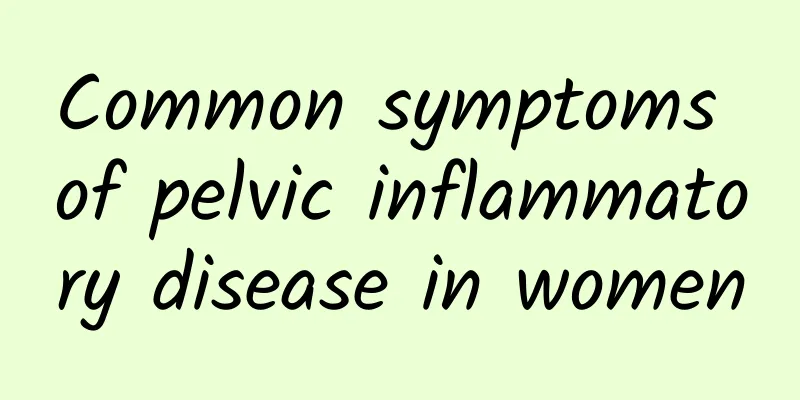Why does pelvic inflammatory disease hurt? Pressure on the pelvic cavity

|
Pelvic inflammatory disease can cause pain in the lower abdomen and lumbosacral region of patients. This is mainly because pelvic inflammatory disease can cause stagnant exudate in the pelvic cavity and adhesion of the pelvic wall. If the connective tissue becomes suppurative, it can also form an abscess, which will compress the local pelvic cavity and cause pain. In addition, it may also be caused by lack of exercise and acute attacks. The incidence of pelvic inflammatory disease among women has always been high. Once the pelvic tissue is infected and inflamed, it will cause a series of adverse symptoms, the most common of which is lower abdominal pain. However, some patients believe that pelvic inflammatory disease will not induce pain, so they will feel surprised when it occurs. So why does pelvic inflammatory disease hurt? |
<<: What foods can't you eat during pelvic inflammatory disease?
>>: Why does pelvic inflammatory disease cause back pain? Inflammation stimulation
Recommend
How to care for pelvic effusion
Pelvic inflammatory disease is a very common gyne...
How to prevent uterine fibroids
Uterine fibroids can be prevented through a varie...
Cervical warts treatment remedies
Speaking of cervical warts, I believe many people...
Can chronic cervicitis cause infertility in women? Is immunotherapy for chronic cervicitis reliable?
As a common gynecological disease, chronic cervic...
Understand the difference between vulvar leukoplakia and other diseases
Do you know the misunderstandings about vulvar le...
Women need to know the basic symptoms of irregular menstruation
Everyone is familiar with irregular menstruation....
Eat at convenience stores every day and follow the dietitian's diet plan without gaining weight
Busy office workers are forced to eat like "...
Do virgins have leucorrhea? It doesn't matter much
Virgins also have leucorrhea, and leucorrhea has ...
What supplements are better to take after ovarian cyst surgery?
What supplements are best to take after ovarian c...
Irregular menstruation and sudden bleeding in urine
Irregular menstruation accompanied by bleeding in...
What are the mid-term exercises for cervicitis?
Cervicitis is a common disease among women of chi...
What is the cause of cervicitis?
In recent years, cervicitis has been on the rise,...
Details in the bedroom to prevent pelvic inflammatory disease
Before sex, sexual partners are in high spirits a...
What is the difference between blood clots from medical abortion and blood clots from residual flow from medical abortion?
The blood and blood clots that flow out of a preg...
What tests are needed for Bartholinitis?
Bartholin's gland inflammation is a common gy...









